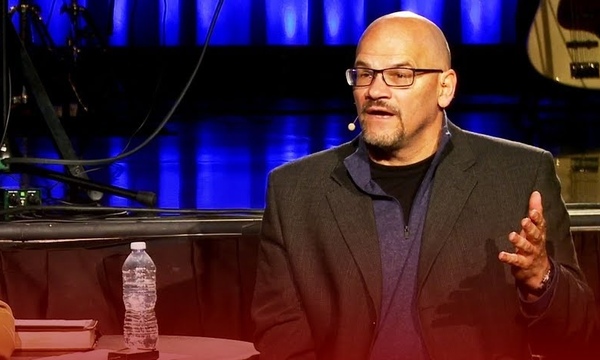Saddleback Church’s Founder and Senior Pastor, Rick Warren, desires to equip pastors, strengthen their leadership in their communities, and mobilize Christians to be influencers for people’s good wherever they work. In early September, Warren invited top-notch Christian thinkers, including Biola University professors and alumni, to come to Saddleback Church in Lake Forest, Calif. and bring their expertise and insight to bear upon tough objections raised against Christianity.
With the support of Howard F. Ahmanson, Jr. and his wife Roberta G. Ahmanson, Warren inaugurated the first among many annual series of lectures, titled, “Saddleback’s Ahmanson Lectures on Faith and Science.”
“I’ve wanted to do this kind of series for ten or twenty years,” said Warren to a packed-out, energized Saddleback audience.
This year’s lectures (September 5-6, 2009), “Faith and Reason: Believe Your Beliefs, Doubt Your Doubts,” featured Biola’s Research Professor of Philosophy William Lane Craig, Distinguished Professor of Philosophy J.P. Moreland, Biola alumnus and Founder and Director of Stand to Reason (STR), Greg Koukl (M.A. Philosophy of Religion and Ethics), along with best-selling author and popular apologist, Dinesh D’Souza, noted Dallas Seminary New Testament Research Professor, Darrell Bock, and pioneering apologist and best-selling author, Norman Geisler.
“Roberta and I are highly pleased to see such a church leader as Rick Warren being willing to engage these issues, and so we were pleased to help him,” said Howard Ahmanson, Jr., who has also been a generous supporter of Biola and other Christian institutions.
The lecture series was a fitting opportunity for both the leadership training aspirations of Warren’s Saddleback Church and for the equipping intent of the Biola speakers.
“It is so important to have these sorts of lectures at a local church and not simply at a para-church site or even on a college campus,” said Moreland.
“By bringing the lectures to the local church, we accomplish two things. First, we make the material available to attendees in an accessible manner during the ordinary course of their church participation. Second, we model a set of values about the life of the mind in the local church itself.”
Biola faculty are earnest to see their teaching roles enlarged beyond their formal positions within the university context.
While at Saddleback, Moreland spoke at three different services on the question, “Has Science Made Belief in God Obsolete?” Discussions about the relationship between science and theology have been a long-term specialization of Moreland’s, especially when it concerns showing how scientific naturalism has failed human persons.
“With my talk, I sought to remove the idea that science has been at war with theology over the centuries,” Moreland said. “Instead, I argued that scientific naturalism is self-refuting, and that there are several scientific discoveries that are quite favorable to belief in God.”
His talk, along with William Lane Craig’s, helped strengthen confidence in the fact that Christian faith is rooted in realistic knowledge.
On Sunday, Sept. 6, Craig spoke on, “How Did the Universe Begin?” which has been a question that Craig has devoted himself to answering during the last couple of decades, whether in his signature title, Reasonable Faith: Christian Truth and Apologetics, or at his nonprofit web ministry (ReasonableFaith.org), or when he is on the debate trail.
“I was greatly encouraged to see Rick Warren’s enthusiastic commitment to the discipleship of the mind at Saddleback,” said Craig.
The question of origins and God’s existence has never been merely a question of science for Craig, but a question of philosophy and theology, and which figures largely in the cultural discussions about the meaning and purpose of life.
Koukl, a former student of Moreland and Craig’s in Talbot’s Philosophy of Religion and Ethics program, has been on the cutting-edge of translating what might otherwise be merely academic discussions in philosophy and apologetics.
At Saddleback, Koukl’s winsome communication helped answer the question, “How Can I Defend My Faith Without Sounding Defensive?” Koukl fittingly closed the series with a charge for Christians to be wise and loving in their communication of why they believe what they believe, a theme that resides in Koukl’s influential Tactics book and from STR’s “Ambassadors” curriculum.
The entirety of Saddleback’s Ahmanson Lectures on Faith and Science can be freely viewed online through Saddleback’s media center.
To enjoy further teaching from Moreland and Koukl, interested persons can attend upcoming lectures provided by Biola’s graduate program in Christian apologetics.
Written by Joseph Gorra, Christian Apologetics.
 Biola University
Biola University


_(1).jpg)